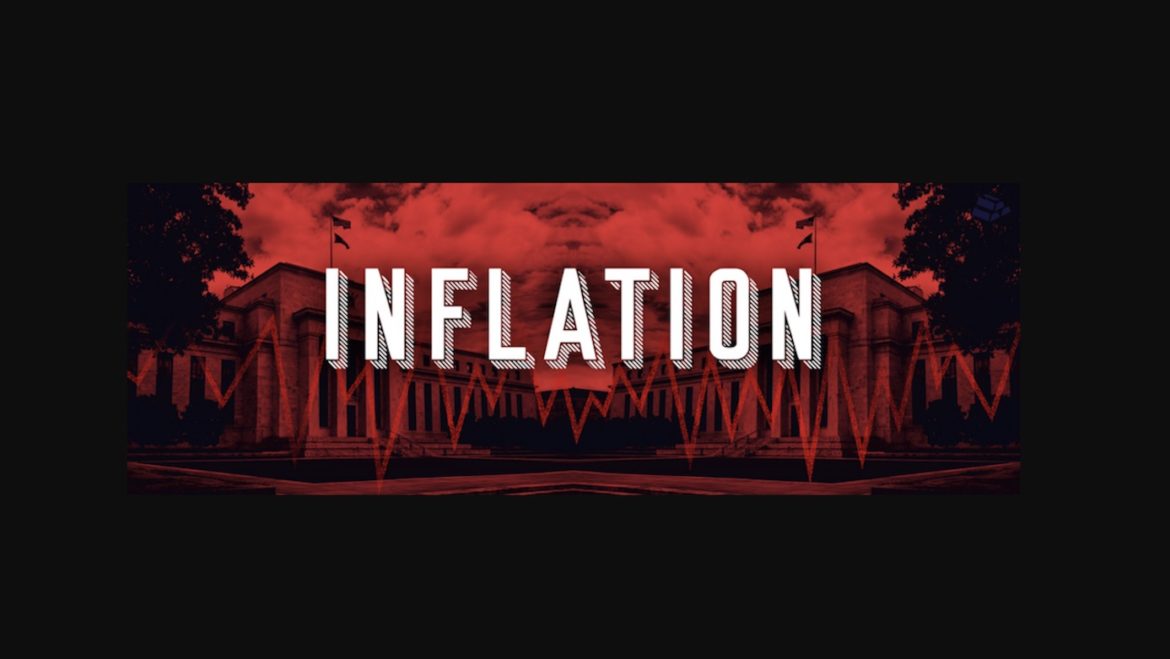Gold has all the potential to go unprecedentedly high. But silver will be gold on
Site:
Precious metals news
Sep 14, 2023 - 06:19:14 PDT
Inflation continues unabated, with the Consumer Price Index (CPI) accelerating to a year-over-year rate of 3.7%. The Core CPI, which removes volatile sectors like food and energy, has risen by a concerning 4.3%. Despite a 33.6% drop in the health insurance CPI, monthly surges in gasoline prices signal further inflationary pressures. As these trends persist, it's evident that the economy is grappling with an ongoing inflationary period.
Producer Prices surged by 0.7% MoM in August, marking the highest increase since June 2022 and surpassing expectations. This uptick suggests a rapidly intensifying inflation environment. Notably, goods prices are increasing quickly year-over-year, and indications point to the continued growth of production costs. This unfavorable inflation trajectory is likely not in line with the Federal Reserve's preferred scenario.
 Retail Sales Unexpectedly Soared In August, As High Gasoline Costs Lead the Way
Retail Sales Unexpectedly Soared In August, As High Gasoline Costs Lead the WaySep 14, 2023 - 06:07:11 PDT
Retail sales in August surprisingly rose by 0.6% MoM, defying BofA analysts' predictions of a decline. The main boost came from a 5.2% MoM spike in spending at gasoline stations, even as overall economic conditions showed mixed signals. Critics advise caution in interpreting this nominal data, especially given rising gas prices.
 European Central Bank Raises Rates to Record High Amid Persistent Inflation Concerns
European Central Bank Raises Rates to Record High Amid Persistent Inflation ConcernsSep 14, 2023 - 05:55:20 PDT
The European Central Bank (ECB) hiked its main interest rate for the 10th straight time, prioritizing combatting inflation over the region's slowing economy. Rates have surged from -0.5% in June 2022 to a record 4%. New ECB projections show inflation at 5.6% this year, and while further hikes may pause, the bank stressed rates will remain at these high levels "for as long as necessary" to manage inflation. Economic indicators suggest downturns, especially in Germany, Europe's largest economy, with business sentiment dropping. With the ECB's aggressive stance on inflation, there's uncertainty about the region's economic outlook.
Rising interest rates and the aftermath of COVID-19 have created an unprecedented challenge for homebuyers.
Despite silver's recent underperformance, it presents an attractive entry point. The gold-silver ratio, historically between 50 and 60, now exceeds 80, suggesting silver's undervaluation. As demand for silver grows in sectors like solar and EVs, and supply challenges loom, prices are expected to rise significantly. The current market dynamics make a compelling case for silver investment.
Jeff Gundlach, CEO of DoubleLine Capital, anticipates the U.S. Federal Reserve to reduce benchmark rates in early 2024. After a rigorous rate increase to address persistent inflation, Gundlach believes the U.S. economy's fragility might prompt the Fed to halt these hikes. He mentioned that for the Fed to stop the rate increases, the U.S. core PCE should drop below 4%.
Rep. Tom Emmer reintroduced the "CBDC Anti-Surveillance State Act" to the U.S. House, aiming to block the Federal Reserve from issuing a surveillance-focused digital currency. Emmer asserts this could endanger Americans' financial privacy. The bill restricts the Fed from giving a CBDC to individuals and using it in monetary policy. Critics, including Robert F. Kennedy Jr., warn of potential financial control over dissenters.
The Federal Reserve posted a staggering $57 billion loss for the first half of 2023, forecasting losses beyond $100 billion by year's end. Their strategy? They print money to purchase Treasury bonds but then borrowed short-term and lent long-term at dismal interest rates, plunging them into this deficit. With their assets now devalued by over $1 trillion, the Fed, by standard accounting, seems technically insolvent, raising grave concerns about its financial prowess.
In August, small business optimism declined, as highlighted by the NFIB, due to concerns about sustained inflation and hiring challenges. Despite the U.S. economy's growth, higher interest rates intensified these worries. With U.S. households bracing for economic challenges, inflation remains a significant concern.
Sep 13, 2023 - 11:49:38 PDT
Major corporations are rapidly entering the bond market this September, anticipating even higher interest rates. These companies are not waiting for potential Federal rate cuts, suggesting a belief in sustained inflation and rising long-term interest rates. There's a significant increase in debt issuance this September compared to last year. As inflationary signals mount, businesses are racing to secure the current rates. Market experts predict further inflation surprises in the coming months, intensifying the urgency.
The lag effect looms like an impending storm. Every day, more borrowers grapple with the repercussions of escalating interest rates. The financial strain is subtle yet progressively intensifying. Couple that with the swift withdrawal of pandemic-related stimuli, and the economy faces turbulence. As we strive for normalcy, this growing lag effect may steer us towards a recession. The economy's heavy reliance on leverage means that sustained high rates are unsustainable without causing significant disruptions.
The consequences of the Fed's decision to raise rates in March 2022 have been devastating for many. Auto loan delinquency rates have soared alarmingly, nearly doubling in a short span. By Q2 2023, the situation worsened, with the US auto loan delinquency rate escalating to a troubling 7.3%, surpassing even pre-pandemic figures. The forecast from Moody’s paints an even grimmer picture, predicting that by 2024, a staggering 10% of auto loans will be delinquent.
The liquidity crisis is looming large. JP Morgan's data indicates a concerning trend: current excess household liquidity is at a dwindling $1.4 trillion. Alarmingly, this reserve is projected to hit rock bottom by May 2024. With household savings vanishing at a staggering rate of $100 billion monthly, they're on track to be drained entirely within this quarter. This dire state of finances is clearly reflected in the surging household debt levels.
The surge in elderly homelessness is being significantly impacted by the Baby Boomers, amplifying a public-policy crisis and burdening taxpayers. Increasingly, aging individuals face homelessness due to the combined factors of high housing costs, insufficient low-cost assisted living centers, and the socio-economic challenges faced by the latter half of the Baby Boomer generation. The severity of the situation, with rising numbers of elderly on the streets, is reminiscent of challenges not witnessed since the Great Depression.
About that disinflation...It was transitory.As we predicted, a jump in gasoline prices helped drive the August Consumer Price Index (CPI) higher, throwing cold water on the disinflation narrative.
Inequality is a topic that has gotten less attention in the years since the onset of the pandemic but signs suggest it may soon be thrust back into the center of the national conversation. Because the pandemic did little to counteract the self-reinforcing dynamics further entrenching inequalities in both wealth and political power. In fact, pandemic-induced dynamics in the housing market have only made things worse, with elevated prices and interest rates leading to record low affordability.
Sep 13, 2023 - 06:46:44 PDT
The estimate comes as federal deficits have exploded in recent years, sharply elevating the trajectory of US debt. The Treasury Department has already auctioned $1 trillion in bonds just within this quarter.
Meanwhile, borrowing costs have soared in the last year and a half as the Federal Reserve embarked on an aggressive tightening campaign, raising the government's debt-servicing costs.
Following July's rebound in headline CPI, August was expected to see that accelerate further (driven by surging energy prices and healthcare methodology changes).
Headline CPI rose 0.6% MoM (as expected), but pushed the YoY change to +3.7% (up from 3.2% prior and hotter than the 3.6% exp). That is the biggest MoM since June 2022...
The Federal Reserve is losing money.That means the American taxpayer is losing money.In most instances, a business bleeding red ink has a big problem and could ultimately go under. Not so for the Fed. In fact, losing money isn’t a problem for the central bank at all. But it is a big problem for the US government.











